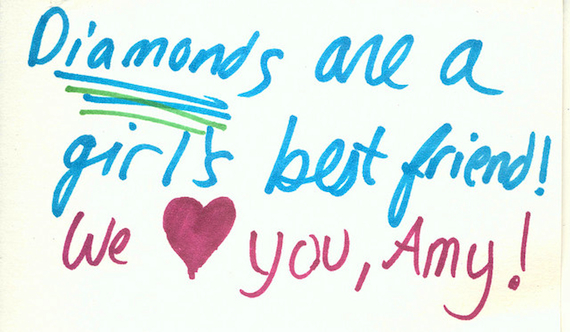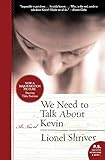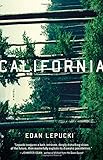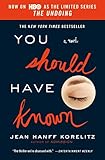
1.
In high school I had a zine with my friend Vanessa. It included our poetry and short stories, and for the cover of the first issue we used a label maker to spell out its title. After we’d put out one or two issues, I received a polite request from a man in prison, asking me to send him a copy. He paper-clipped two dollars in cash to his request. For some reason, I put the letter aside. From time to time, I took out the request, read it, and then put it back. Years later, I spent the money.
 To borrow a phrase from Bennie Salazar, the record producer in Jennifer Egan’s A Visit From The Goon Squad, this is one of my “shame memories.” Sometimes when I can’t sleep, or when I’m having a particularly low day, I think about the guy in prison who wanted to read my zine, and I wonder why I never sent it to him, why I spent his two bucks on lip balm or a soda or whatever. What shames me the most is that there was no reason why I didn’t send him the zine. I just…didn’t. I had planned to, but something, perhaps the teenage trifecta of distraction, malaise, and self-absorption, held me back. I’m also ashamed that I think about this so much. As if my juvenile zine really mattered all that much to anyone.
To borrow a phrase from Bennie Salazar, the record producer in Jennifer Egan’s A Visit From The Goon Squad, this is one of my “shame memories.” Sometimes when I can’t sleep, or when I’m having a particularly low day, I think about the guy in prison who wanted to read my zine, and I wonder why I never sent it to him, why I spent his two bucks on lip balm or a soda or whatever. What shames me the most is that there was no reason why I didn’t send him the zine. I just…didn’t. I had planned to, but something, perhaps the teenage trifecta of distraction, malaise, and self-absorption, held me back. I’m also ashamed that I think about this so much. As if my juvenile zine really mattered all that much to anyone.
Lately, I’ve been thinking: If I were a fictional character, would readers hate me?
2.

 In her essay “Perfectly Flawed” Lionel Shriver writes, “Surely if fiction recorded the doings only of good campers who anguish about climate change and buy fair trade coffee, novels would be insufferably dull.” I agree. As a reader, my only rule is that a character be interesting. I also have a taste for the quote-unquote unlikeable set: Eva Khatchadourian from Shriver’s We Need to Talk About Kevin; Sheba and Barbara from Zoe Heller’s Notes on a Scandal; Undine Spragg from Edith Wharton’s Custom of the Country. I love that they’re barbed, delusional, judgmental, thorny, damaged, and/or vulnerable. As Roxane Gay writes, “I want characters to think ugly thoughts and make ugly decisions. I want characters to make mistakes and put themselves first without apologizing for it.”
In her essay “Perfectly Flawed” Lionel Shriver writes, “Surely if fiction recorded the doings only of good campers who anguish about climate change and buy fair trade coffee, novels would be insufferably dull.” I agree. As a reader, my only rule is that a character be interesting. I also have a taste for the quote-unquote unlikeable set: Eva Khatchadourian from Shriver’s We Need to Talk About Kevin; Sheba and Barbara from Zoe Heller’s Notes on a Scandal; Undine Spragg from Edith Wharton’s Custom of the Country. I love that they’re barbed, delusional, judgmental, thorny, damaged, and/or vulnerable. As Roxane Gay writes, “I want characters to think ugly thoughts and make ugly decisions. I want characters to make mistakes and put themselves first without apologizing for it.”
Every couple of months there’s a new defense of unlikeable characters (see: Claire Messud‘s take) or likeable ones (see: Jennifer Weiner’s), and this conversation often returns to our cultural expectations of women. Recently, Emily Nussbaum wrote about “The Female Bad Fan” for The New Yorker. These are “the fans of shows with female protagonists, both comedies and dramas, who crave not bloodshed but empowerment.” Nussbaum writes:
The Mindy Project is a sitcom about a woman poisoned by rom-coms, but it offers up its own romantic-comedy pleasures. Female viewers, especially, have been trained to expect certain payoffs from romantic comedies, vicarious in nature: the meet-cute, the soul mate, and, in nearly every case, a “Me, too!” identification. Without “Me, too!,” some folks want a refund.
 I’ve come across something similar with my own novel, California, which is marketed as a literary post-apocalyptic novel, but is also a study of a young marriage. While many readers tell me they like the wife, Frida, many do not. Readers on Goodreads or Amazon have expressed this opinion, but so have a couple critics: in the Washington Post, for instance, Sara Sklaroff remarked that Frida “isn’t much of a heroine. She’s annoying, self-centered and tragically naive.” I was surprised that Sklaroff hated Frida as much as she did, and even more puzzled that she didn’t also have trouble with Cal, Frida’s husband; to me, they’re both flawed. I was surprised, too, that character likability was a central focus of the review.
I’ve come across something similar with my own novel, California, which is marketed as a literary post-apocalyptic novel, but is also a study of a young marriage. While many readers tell me they like the wife, Frida, many do not. Readers on Goodreads or Amazon have expressed this opinion, but so have a couple critics: in the Washington Post, for instance, Sara Sklaroff remarked that Frida “isn’t much of a heroine. She’s annoying, self-centered and tragically naive.” I was surprised that Sklaroff hated Frida as much as she did, and even more puzzled that she didn’t also have trouble with Cal, Frida’s husband; to me, they’re both flawed. I was surprised, too, that character likability was a central focus of the review.
3.
To be honest, the negative reactions to Frida have given me a wee bit of a complex. I’ve found myself wondering about my own actions, about the way I’ve hurt this or that person, or felt slighted about some insignificant thing someone said to me. The way, in college, I asked, “What’s with the hat?” to a Mennonite at the movies. The shame memories are running on repeat these days, is what I’m saying.
Frida isn’t like me: she is impetuous and secretive, she acts based on emotion and intuition, and she’s a slacker. Cal isn’t like me either: he is more hesitant, reserved, and adaptable than I am. These characters frustrated and disappointed me, but I always found them compelling. Likability wasn’t part of the equation; I simply wanted to write about these two specific people, alone and together in the woods, mourning their pasts and trying to stay hopeful. If anything, I was interested in setting a small-scale drama within an “end-of-the-world” situation. What if, at the end of the world, we aren’t our best selves–we’re just ourselves?
(This summer I read The Hunger Games and though I’d love to be as brave as Katniss, I doubt I would be. Maybe the post-apocalyptic genre has trained us to expect characters to break free from the shackles of pettiness and resentment and grief in the face of world-ruin. I’m interested in the characters who don’t or can’t do that.)
4.
 I decided to ask two fellow writers about their experience with the “unlikeable” issue. Jean Hanff Korelitz told me that by the time her new novel, You Should Have Known, came out in March, readers’ dislike for her protagonists had “risen to a general din…even from readers who liked the novel very much.” She went on:
I decided to ask two fellow writers about their experience with the “unlikeable” issue. Jean Hanff Korelitz told me that by the time her new novel, You Should Have Known, came out in March, readers’ dislike for her protagonists had “risen to a general din…even from readers who liked the novel very much.” She went on:
‘I just didn’t like her’ is a phrase I read over and over again on Goodreads and Amazon, about the protagonist, Grace Sachs (a woman who has so many problems — missing, probable murderer and adulterer husband, exploding career, global humiliation, etc.– that reader reviews would be pretty far down on the list).
The whole phenomenon made me take stock of the female characters I’ve gravitated to over the years: Lizzie Bennet? Becky Sharp? The strange, probably mentally ill narrator of Marilynne Robinson’s Housekeeping? Would I truly have wanted to take a spa weekend with any of them? When had that become a requirement for appreciating a fictional character?
When I asked Jean what’s on her mind as she creates a character, she said, “I seem to have this compulsion to take women who appear strong, fortunate, “self-actualized,” and rip them to shreds, then see what they make of themselves after that, how they claw their way back.” She continued:
I think there’s an essential feminism at work here…not that I am in the habit of quoting Therese Giudice (she of the indelible “ingredientses” for the cookbooks she — God help us — writes), but her most recent Real Housewives tagline — “You never know how strong you are until it’s the only choice you have…”–could serve the protagonists of most of my novels. Women really are strong when they have to be. And that, to me, is far more compelling than finding your “bestie” in the pages of a novel.
Since receiving Jean’s words of wisdom, I’ve been thinking a lot about what I want to see in fictional characters, no matter the gender: I want them complex and realistic, and also surprising. And for female characters, it’s particularly important to me that they have the freedom to be whatever they need to be, whether it’s strong, or weak, or ice-cold, or vulnerable, or all of the above. After all, my real-life best friend can be all of those things, and I still love her.
Author Emma Straub helped me put this all in perspective. A small contingent of readers don’t seem to like her character Franny, who is the matriarch of Emma’s novel The Vacationers. (Which is weird to me, as Franny is funny, an excellent cook, and she’s being pretty pleasant in the wake of her husband’s infidelity.) Emma is wonderfully sanguine about the issue:
I certainly never intended to make my characters either likable or unlikeable — my goal with the characters in this book was to make them as real as possible. Warts and all. I always liked them, but I don’t think that’s even the point. I wasn’t surprised when some readers didn’t, because I saw them as three-dimensional human beings, and god knows it’s hard to find one of those that you don’t find in some way lacking or imperfect. I truly could not care less if readers feel differently.
I also think there’s a big difference between a character being unlikeable (whatever that means) and it being unpleasant to spend time reading about them. I have put down many books because I didn’t like the experience of reading them, but that has nothing at all to do with whether or not the characters in those books seemed like people I would want to hang out with. That’s my question, I suppose, for the people who keep bringing this horseshit up. Are they complaining about not enjoying the book, or that they don’t want to have tea with the characters? Because if it’s the former, for godssake, stop reading!
I grew up in a house built on horror novels, so I’ve spent my entire life reading books about serial killers and pedophiles and assorted other creeps. Are those unlikeable characters? To some people, probably.
5.
 Traditionally, the Unlikeable Character in fiction is created with authorial intention. You, as the reader, recognize the cues that the person you’re reading about is alienating or reprehensible, and it’s clear that such characterization is part of author’s aesthetic project. (Unreliable Characters, a la the infamous butler in Remains of the Day, are also traditionally revealed this way). But what if a character isn’t Unlikeable, but unlikeable? What if you just didn’t like him or her? That’s a valid personal response, and certainly a good a reason as any to stop reading. But it’s such a personal response that it’s irrelevant to the critical gaze.
Traditionally, the Unlikeable Character in fiction is created with authorial intention. You, as the reader, recognize the cues that the person you’re reading about is alienating or reprehensible, and it’s clear that such characterization is part of author’s aesthetic project. (Unreliable Characters, a la the infamous butler in Remains of the Day, are also traditionally revealed this way). But what if a character isn’t Unlikeable, but unlikeable? What if you just didn’t like him or her? That’s a valid personal response, and certainly a good a reason as any to stop reading. But it’s such a personal response that it’s irrelevant to the critical gaze.
6.
Part of me is embarrassed that I unintentionally wrote characters that are so insufferable–at least to some readers. It’s like holding a glass up to a door, behind which strangers are describing how terrible you–or worse, your children!–are. I can’t help but keep eavesdropping.
At the same time that I emailed Jean and Emma, I also sought out readers who couldn’t stand Frida. This was part anthropological experiment, part focus group. I felt like, if I could just get some answers, I might understand my own book a little better.
I stumbled upon Susan’s review on Goodreads. In it, she details how much she couldn’t stand any of the characters in California. It’s a very funny rant, which begins, “I don’t remember ever before reading a book where I so hated all of the pieces yet so very much enjoyed the book as a whole.”
When I asked Susan when exactly her antipathy began, she told me, “I actually disliked Frida from almost the first page. She immediately seemed crass and spoiled to me.” In the first scene, the reader learns that Frida treasures a turkey baster, purchased before leaving Los Angeles, which even Cal doesn’t know she possesses. Susan said, “The turkey baster was so bizarre… I got what it was about, but the fact that it was so frivolous and silly, combined with the fact that the very first thing I learned about her was that she was keeping secrets (STUPID secrets!) from her husband just turned me off.”
Susan’s reactions fascinated me. One, that frivolity would be damning, rather than revealing, or that a reader would require a secret be grave, especially when it’s between a husband and wife. I’m reminded of the time someone told me they hate to dance, as in, they never ever feel the urge to move to music, even when alone. Wow, I thought, people sure are different from me!
(Susan also hated that Frida “seemed to be entirely defined by the men in her life.” I hate that, too.)
Susan had some choice words for Cal: “The truth is, I actually hated Cal more than Frida. I thought he was a pompous pseudo-intellectual hipster ass.” Sheesh, Susan, tell me how you really feel! Generally, she interpreted Cal and Frida through the lens of their white privilege. That interpretative model poses a powerful question about characterization: how much is our identity, and our actions, dictated by race and class? But, then again, if a reader traces everything about Frida and Cal back to their white privilege, that means I’ve failed, in some way, to make them fully human. It also might suggest that there’s a lower tolerance for white privilege in the post-apocalyptic landscape; some readers want the end-of-the-world to slough off such burdens. (To me, Frida and Cal are victims of late-capitalism, and also products of it. Aren’t we all.)
Another reader, Shayna, answered my call on Tumblr for anyone who hated Frida. She said she was bothered by Frida’s decision to take a Vicodin while pregnant. And, again, she took issue with Frida withholding information, especially from Cal. She wrote, “I just found this so stupid and selfish.” It’s true, Frida does some pretty stupid and selfish stuff, as does Cal. I suppose, as a writer, I’m interested in the stupid, selfish choices we make.
7.
Hearing from Shayna and Susan brought me some peace, for I can’t control how people react, nor should I want to. I am honored that my novel elicited strong reactions to my characters, and I’m heartened that both readers enjoyed the book despite (or because of!) these reactions. Both agreed that there’s often a double-standard for female characters. Shayna said, “A women is whiny or bitchy and ruins the story whereas a male is mean or surly and [that] just makes him interesting or an anti-hero.”
Susan said, “I am a huge, huge fan of Gillian Flynn, the primary reason being that she’s not afraid to write female characters who are evil, psychotic, violent, and messed up in every possible way. I find that so much more empowering and compelling as a female reader to hear about those women than about the perfect, nice, likeable, and usually totally unrealistic female characters you find in most novels.”
Susan’s tastes align with mine, and with many other readers’. Right now there are so many complex female characters for us to encounter on the page and screen, particularly quote-unquote unlikable ones, from Amy Elliott-Dunne of Gone Girl, to the (less murderous) Hannah Horvath of Girls. I, for one, can’t turn away from these women, and I won’t.
I won’t turn away from the characters who stem from my own dark, muddy mind, either.
Image via amysjoy/Flickr








